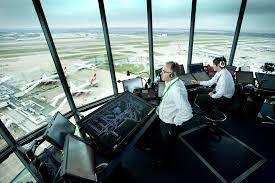7 September 2023
Over-Sweating
The air traffic control disaster.
By Robert Kilconner
Why were we not surprised? No, not at the fact that the air traffic control system went wrong – it is in the nature of high tech systems to do that from time to time – but at there being no plan B, so that everyone’s holiday plans were ruined. Of course there wasn’t. There never is. It’s just like the problems on the railway. Suppose that there is a fault on the line. Do they simply divert the trains down other tracks or does the whole show come grinding to a halt? We know the answer to that. The saving of infrastructure costs mean that assets are used to capacity so that there is nothing to fall back on when the system is disrupted.
It isn’t just about infrastructure, of course. We economise on those providing services so that you cannot get a sensible reply from HMRC, or the benefits people, or anyone like that when you need to go beyond what is available online. The important thing is to keep the cost down and to rely on technology, so no wonder it all goes wrong when the technology proves inadequate.
Technology is only one facet, though. Look at the current proposals to cut back on station staff. No doubt machines will issue tickets every bit as efficiently as individuals do in the normal way but what happens when things go wrong? Suppose you need help loading your luggage or there are doubtful characters lurking on the platform. Can the technology deal with that? Well, no, it can only deal with normal jobs like route planning, ticket checking and the like. To employ someone to keep an eye on things would be to waste resources and that means spending more than you can get away with.
And yet the drive goes on, from smart motorways to onscreen testing. Replace people by machines; sweat assets; cut costs. That is where the future seems to be whether you look at the private sector with its need to maximise profit or at the public sector with its need to minimise cost. Both in the end push the same way. Cutting manning levels and sweating assets makes short term economic sense, albeit at a cost whether in services or in security of supply to the consumer. We make a god of efficiency.
But it is odd when you think about it. Critics of AI identify unemployment as one of the problems to which it will give rise. Lots of people lolling around in their beds with very little to do. How are we to maintain them or, perhaps more to the point, how are we to stop them from degenerating? Where can meaningful jobs be found for them? The obvious answer must be in re-manning our services and industries. Employ more air traffic controllers to sort out the chaos when it occurs. Make sure that there is a jolly stationmaster at every station, that there are more policemen on the beat, that when you have a tax problem there is someone you can ring to discuss it with. Build and man an infrastructure with more fat in it.
It is the obvious plan to follow but its delivery is difficult. How do you get people, voters, customers and shareholders to accept that a margin should be left and that they should be prepared to pay for it? In those parts of the private sector where there is realistic competition there are at least mechanisms which may help. Although some will always focus on the lowest price, the level and consistency of service is important too. If you have an important project to deliver, would you choose the law firm which always picks up the phone or the one which leaves you with an answerphone to talk to? It is no coincidence that the most aggressive and successful businesses were among the first to get their employees back into the office after the pandemic. When it gets to monopolies or public services, however, the pressure weakens and the prize is for the manager or politician who can boast the lowest cost. Hence the over sweating of capital assets and the underemployment of workers.
Sometimes, of course, the public get the point and object when they see the provision of services becoming too lean. Hence the protests at the de-manning of the stations. Hence the objection to the introduction of smart motorways. Hence the outcry when rural deliveries are cut. But for this to happen the consequence of economies has to be obvious. The public are simply not in a position to assess whether the air traffic control system is sufficiently robust to be able to deal with unexpected issues, or whether water companies have sufficient contingencies to deal with heavy rainfall. Here the burden must fall on regulators, and their thinking (which of course already focusses on such issues) needs to be put squarely before the public. The way in which this is done and the way in which risks to provision are publicised is an area which needs to be considered very carefully.


